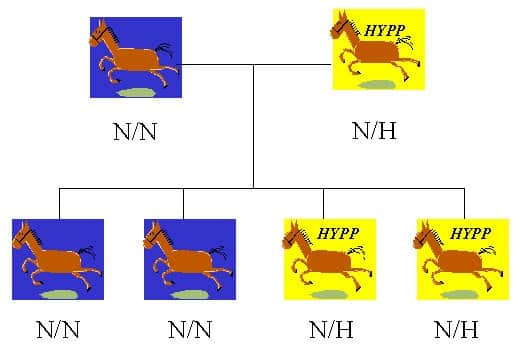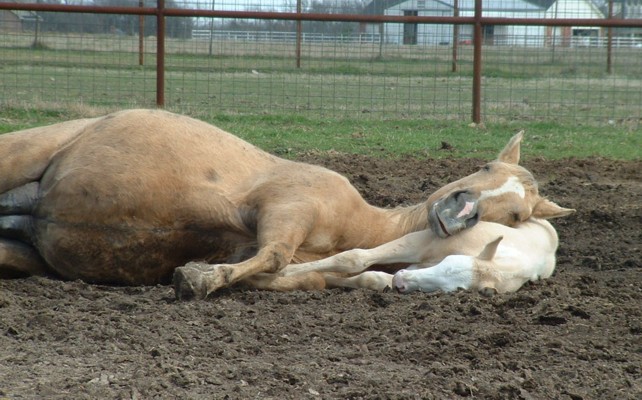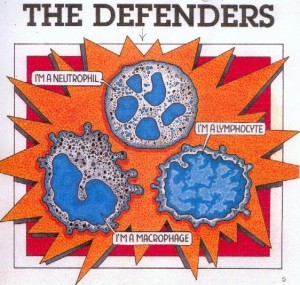 I am very glad that your horse has an immune system. You should be, too. It’s important for your horse. The immune system is tremendously complicated: even elegant. There are whole fields devoted to the study of the immune system (immunology, for one), and the workings of B-cells, and T-cells, and lymphocytes, and lymphoid cells, and thymuses, and macrophages, and hormones like thymosin and thymopoeitin, and on and on and on. People build careers on this stuff.
I am very glad that your horse has an immune system. You should be, too. It’s important for your horse. The immune system is tremendously complicated: even elegant. There are whole fields devoted to the study of the immune system (immunology, for one), and the workings of B-cells, and T-cells, and lymphocytes, and lymphoid cells, and thymuses, and macrophages, and hormones like thymosin and thymopoeitin, and on and on and on. People build careers on this stuff.
Your horse’s immune system is his defense against illness and infection. His immune system (mostly*) knows which cells are supposed to be in the horse, and which ones aren’t. And when it seems something that isn’t supposed to be in the horses body – things like bacteria, viruses, or even parasites – it seeks out and destroys them.
And that is a very, very good thing.
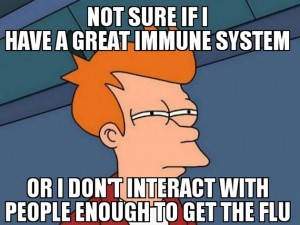 In fact, the immune system is such a good thing that most people are really enthusiastic about it, even if they don’t understand it at all. It’s sort of like a microchip in that way, I think. People are really enthusiastic about microchips. Microchips run, well, just about everything – got a smart phone? computer? camera? car? – and we like our stuff. But, ask anyone about the details of design and construction of a microchip and most people (including me) really don’t have much to say. They know that microchips are great, and, hey, the more stuff with microchips, the better, right? And that’s about it.
In fact, the immune system is such a good thing that most people are really enthusiastic about it, even if they don’t understand it at all. It’s sort of like a microchip in that way, I think. People are really enthusiastic about microchips. Microchips run, well, just about everything – got a smart phone? computer? camera? car? – and we like our stuff. But, ask anyone about the details of design and construction of a microchip and most people (including me) really don’t have much to say. They know that microchips are great, and, hey, the more stuff with microchips, the better, right? And that’s about it.
When it comes to the horse’s immune system, I think that most people are aware of a couple of facts.
IMMUNE SYSTEM FACT NUMBER ONE – When a horse gets sick, his immune system usually helps him get better.
This fact, of course, sets up a lot of basic enthusiasm for the immune system. And, like most people, when we’re enthusiastic about something, we want to support it. That’s why, for example, I own an Indianapolis Colts football jersey. I don’t live in Indianapolis, and I’m perfectly aware that the Colts are going to win or lose whether or not I’m in front of the TV on Sunday (or Monday night, or whatever). As much as it hurts to say this, none of the Colts even know who I am. But that doesn’t stop me from wanting to support them anyway. And the Colts are happy to take my money for my support (I’m sure you can see what’s coming here…).
IMMUNE SYSTEM FACT NUMBER TWO – If the immune system is prepared, some diseases can be prevented. This is the underlying basis for vaccination.
I guess if what people thought that they knew about the horse’s immune system stopped there, it would be good enough. But good enough rarely is. See, when people see or hear of a good thing, many people like to try to get in and help. Unfortunately, like most things, a lack of in-depth knowledge and a simplistic understanding is a combination that can bring trouble. And confusion (immnoconfusion, in this case). And sales opportunities.
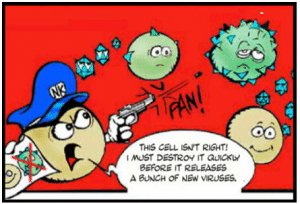 For some reason, many people seem to think that the horse’s own immune system routinely needs help. They think that if a horse isn’t getting better fast enough (or at all), it’s because the immune system isn’t working well enough. Or working right. Or something. And, as such, they may think that the immune system needs to be “stimulated.” Or “supported.” Or “boosted.” What’s meant by such terms is almost amazingly vague, but they are certainly made with the idea that the horse’s best interest is in mind. It’s the “bigger hammer” theory of medicine; if there’s not enough immune function, there could be trouble, so getting “more” will make things lots better.
For some reason, many people seem to think that the horse’s own immune system routinely needs help. They think that if a horse isn’t getting better fast enough (or at all), it’s because the immune system isn’t working well enough. Or working right. Or something. And, as such, they may think that the immune system needs to be “stimulated.” Or “supported.” Or “boosted.” What’s meant by such terms is almost amazingly vague, but they are certainly made with the idea that the horse’s best interest is in mind. It’s the “bigger hammer” theory of medicine; if there’s not enough immune function, there could be trouble, so getting “more” will make things lots better.
The idea that more is better is is why there are lots of products out there that claim to do be able to boost/support/optimize/whatever. Here are some claims, taken from various websites, after a brief Google search:
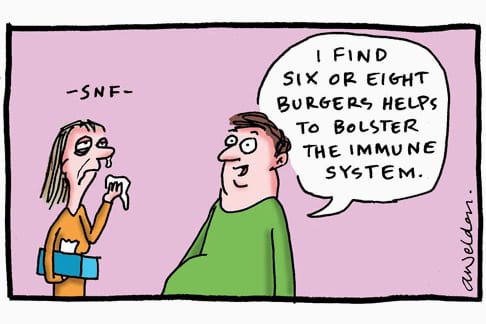 “Keeping your horse’s immune system strong is crucial to maintaining overall health and longevity.”
“Keeping your horse’s immune system strong is crucial to maintaining overall health and longevity.”
“Your horse may need immune support if he is in intense training, is trailered frequently, is recovering or is just getting older.”
“A complex supplement for a complex system, caring for the interlocking cells and organisms that coordinate activity to recognize what belongs in the body and what doesn’t.”
Hopefully, most of you will recognize that this is just a bunch of linguistic gobbledygook (that word, by the way, appears to have originated in the US in the 1940s, referring to the noise of a turkey’s gobble – another word, made up about the same time, but how out of use, is bafflegab). But if you don’t immediately recognize the silliness, and if such advertising lines make your curious, here are a few questions you might want to ask.
 1) What part of the immune system is being “stimulated” or “supported? I mean, are we talking about the humoral immune system, the one that produces antibodies to fight disease? Or are we taking about the cellular immune system, the one that involves the production of natural killer cells? Or maybe the innate immune system, the non-specific system that’s the horse’s first line of defense against disease? Could such products be “supporting” the adaptive immune system, the highly specialized system that’s made up of cells and processes that eliminate or prevent pathogen growth? Or maybe all of them? (Or maybe none of them?)
1) What part of the immune system is being “stimulated” or “supported? I mean, are we talking about the humoral immune system, the one that produces antibodies to fight disease? Or are we taking about the cellular immune system, the one that involves the production of natural killer cells? Or maybe the innate immune system, the non-specific system that’s the horse’s first line of defense against disease? Could such products be “supporting” the adaptive immune system, the highly specialized system that’s made up of cells and processes that eliminate or prevent pathogen growth? Or maybe all of them? (Or maybe none of them?)
2) What, exactly, is the mechanism of this “stimulus”? I mean, it’s all well or good – perhaps even tasty – to throw a handful of turmeric, a bit of vitamin C (which horses don’t need – they make all their own), some mushrooms, or some fatty acids into a bucket, but how, exactly, is this supposed to do anything? You should know before you lay out your hard-earned money, don’t you think?
3) How is the “stimulus” regulated? Even if you did want to “boost” immunity, too much immunity not only isn’t good, but it’s very clearly bad. You don’t want to go out and stimulate the horse’s immunity willy-nilly (OK, I’m on an etymology run here. This one’s really interesting. Wiilly-nilly dates back to about 1600. It’s a contraction of will I, nill I, or will he, nill he, or will ye, nill ye, literally “with or without the will of the person concerned.”)
As great as the horse’s immune system is, it can also cause problems. There’s autoimmunity, and there’s also hypersensitivity, the type of hyped up immune system response that gives the horse such fun things as itchy skin, hives, and other allergic reactions. I can’t imagine anyone wanting that. So, what’s in your immune product that keeps the “boost” under control?
If you do ask such questions, I can tell you what the answers will be, by the way. The usual response seems to be, “I don’t know how it works, I just know that it helped.” And then other testimonials follow. Sigh.
Look, the immune system is a complex series of interactions. There are interactions at the organism level (horse vs. microbe). There are interactions at the cellular level involving parts of the horse’s body that people spend careers studying, the details of which are still being worked out: T cells, B cells, phagocytes, Antigen Presenting Cells, plasma cells, natural killer cells, cytolytic cells, suppressor cells, endothelial cells, and target cells. The immune system involves interactions at the molecular level. It involves many cell-surface and soluble molecules. Within the cells that have immunologic activity, a series of molecular reactions trigger the production of other immunologically-active proteins. And the whole immune system is maintained by an elegant series of regulatory cells, proteins, and other molecular regulators. We have barely begun to understand it all. And I guarantee you that you won’t find such understanding in a bucket on the shelf of a feed store, or at the click of a button on the internet.
Interested in the immune system? Think maybe I’m a little over-concerned about immune system silliness? Well, take a look at some other sources, such Harvard Health Publications (CLICK HERE). And to be truthful, if you want to “boost” your horse’s immune system, do important, but more mundane things, like feed him well, exercise him regularly, and keep him at a good weight. A horse that looks healthy on the outside is likely to have a healthy immune system, too.
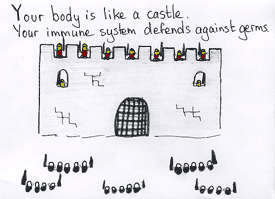 Frankly, I find myself kind of in awe of the immune system. It’s so cool. But, while cool, it’s also pretty incomprehensible, particularly to those who haven’t studied it. As such, I don’t think that it’s advisable to attempt to indiscriminately disrupt (“stimulate”) any part of this network, much less pay for the unproven stuff that says it does. Both under-response and over-response of the immune system (“stimulation”) lead to, or are, disease states. So, again, I think that it’s simplistic – meaningless, really – to talk about some sort of general immune system stimulation/boosting or whatever without being specific about what it is we’re trying to do, and why. The immune system is a very elegant, complex, and tightly regulated system, and giving it an overall “boost” is something that I’d think we’d approach very carefully, given all that we know about what happens when it does get revved up.
Frankly, I find myself kind of in awe of the immune system. It’s so cool. But, while cool, it’s also pretty incomprehensible, particularly to those who haven’t studied it. As such, I don’t think that it’s advisable to attempt to indiscriminately disrupt (“stimulate”) any part of this network, much less pay for the unproven stuff that says it does. Both under-response and over-response of the immune system (“stimulation”) lead to, or are, disease states. So, again, I think that it’s simplistic – meaningless, really – to talk about some sort of general immune system stimulation/boosting or whatever without being specific about what it is we’re trying to do, and why. The immune system is a very elegant, complex, and tightly regulated system, and giving it an overall “boost” is something that I’d think we’d approach very carefully, given all that we know about what happens when it does get revved up.
But there’s no money in that, I suppose.
_________________________________________________________________________________________
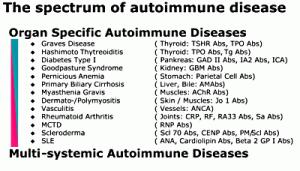 * I say “mostly” because there are conditions where the recognition system gets messed up. As a group, these conditions are called autoimmune diseases. They’re not very common in horses, but can be a big problem in people, causing things like rheumatoid arthritis and systemic lupus erythematosis (SLE, or lupus). Bad problems, for sure.
* I say “mostly” because there are conditions where the recognition system gets messed up. As a group, these conditions are called autoimmune diseases. They’re not very common in horses, but can be a big problem in people, causing things like rheumatoid arthritis and systemic lupus erythematosis (SLE, or lupus). Bad problems, for sure.







